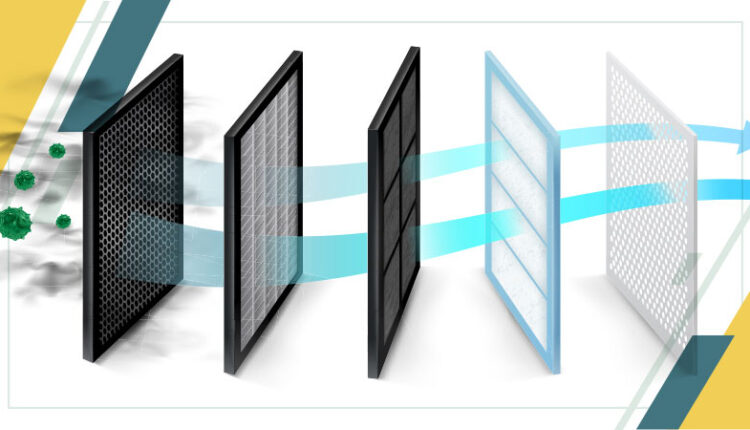In a world where clean air is becoming a luxury, there is one unsung hero quietly working behind the scenes to protect our health and well-being. Welcome to the air filter, the unsung champion of enhanced air quality. From dust and pollen to pet dander and mold spores, air filters are the formidable guardians that stand between us and the pollutants that seek to invade our sacred spaces.
So, take a deep breath and enter the world, where every inhale becomes an act of self-preservation.
What are Air Filters?
Air filters are essential devices used in various settings to remove harmful airborne particles, pollutants, and microorganisms from the air. These devices play a vital role in preserving product quality and protecting critical equipment. They are often found in homes, offices, and hospitals, effectively offering clean air.
How Do Air Filters Function?
Air filters purify unclean air through fine openings, trapping larger particles and separating them from the air. Regular replacement or cleaning of the filter medium prevents clogging and restricts airflow, enhancing filtration efficiency. Air filters effectively remove harmful pollutants and particles that exist in ambient air, including dust, dirt, aerosols, odors, smoke, viruses, bacteria, molds, and toxic gasses that can cause various diseases and health issues.
What are Common Types of Air Filters?
Below are the most common types of air filters used in home, commercial, and other applications.
● HEPA Filters
HEPA (high-efficiency particulate air) filters, recommended by the U.S. Department of Health, remove 99.97% of airborne allergens and pollutants. These filters provide the highest protection from harmful pollutants, including mold spores and dust as small as 0.3 microns. They are ideal for homes and especially beneficial for individuals with allergies or respiratory issues.
● UV Filters
UV filters use short-wave ultraviolet light to kill bacteria and viruses in HVAC units, disinfecting air with germicidal radiation. They can kill hazardous microorganisms like mold spores, destroying bacteria and viruses that can cause respiratory issues. UV filters are part of larger filtration mechanisms, like HEPA air filters. Since UV light is invisible, these filters require annual replacement based on the HVAC model type. These filters are recommended to improve indoor air quality.
● Electrostatic Filters
Electrostatic filters are made from cotton and paper fibers to generate static electricity that can attract dust and other airborne particles, preventing their spread. These filters offer a cost-effective solution and can be used as disposable or reusable, providing flexibility to users. They are particularly beneficial for enhancing indoor air quality and are commonly found in house air filters.
For instance, the 3M Electrostatic Air Conditioner Filter by the 3M company enhances wall-mounted air conditioners by removing microparticle pollutants. They allow easy cleaning and cooling in just 5 minutes, making them suitable for all AC models.
● Pleated Filters
Pleated filters, made from polyester fabrics or cotton folds, are an effective HVAC filter material, which has a MERV rating between 5 and 13. They offer better filtering due to their larger surface area, which traps difficult allergens and pollutants. Pleated filters are available in reusable and disposable models and can suppress filter fan noise. Pleated filters are a reasonably-priced option for improving air quality.
● Washable Filters
Washable filters are an environmentally friendly option for HVAC systems, offering a long-lasting investment. Despite their high initial cost, they can be easily washed and reused, saving money on new filters. It is important to note that washable filters require appropriate maintenance to function properly.
● Media Filters
Media filters are superior to high-MERV filters in HVAC systems due to their greater surface area, ability to filter bacteria and small airborne pollutants, and low cost. They are easy to maintain, require only a once or twice-a-year change, and trap pollutants effectively. However, they require professional installation in order to work efficiently.
● Spun Glass Filters
Spun glass filters are a common type of HVAC filter made from spun fiberglass. Spun glass filters are affordable and effective in filtering fine particles like lint and dust, making them a popular choice for various applications.
Final Thoughts
Air filters are not just accessories for HVAC systems; they are essential guardians of our indoor air quality. They tirelessly work to remove pollutants, allergens, and even microscopic particles that can compromise our health and well-being. From reducing allergies and respiratory issues to creating a sanctuary of fresh air within our homes, these filters play a vital role in safeguarding our well-being. By investing in high-quality air filters and regularly maintaining them, we can create a healthier and more comfortable living environment for ourselves and our loved ones.


